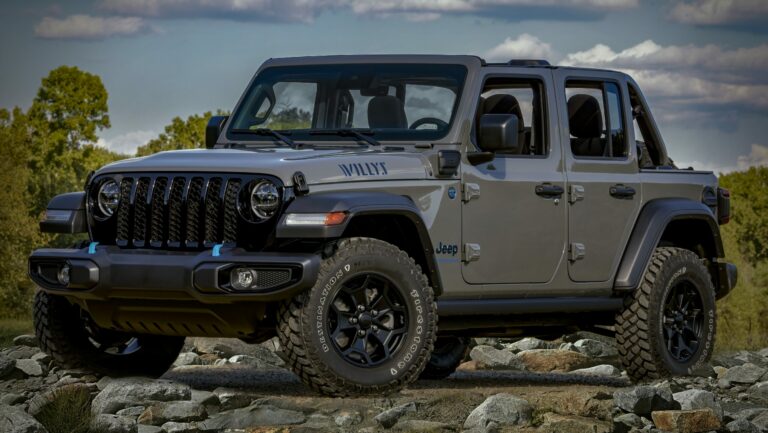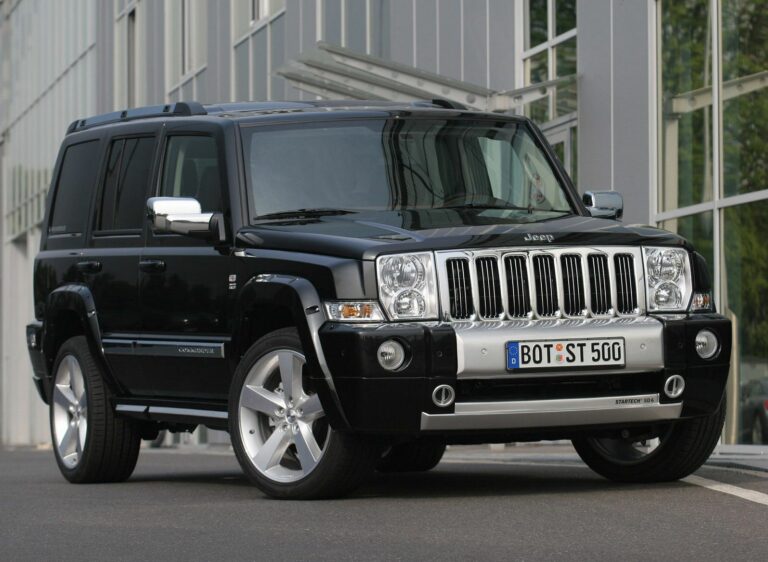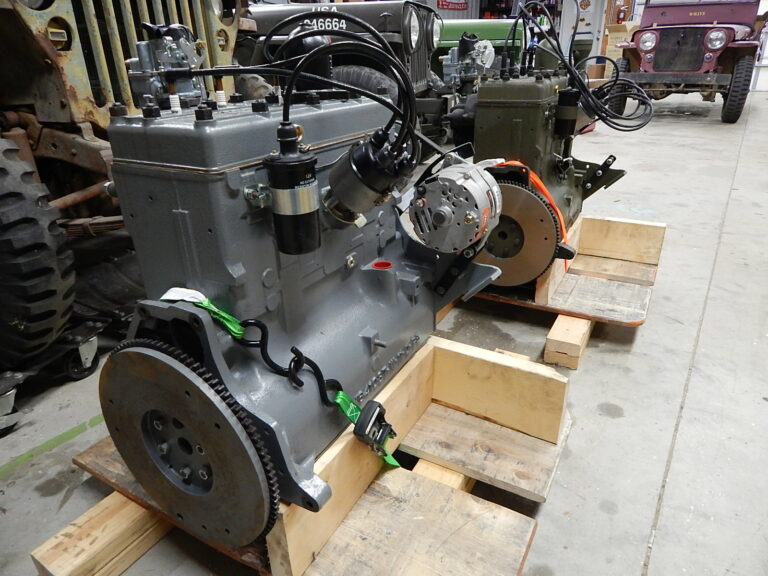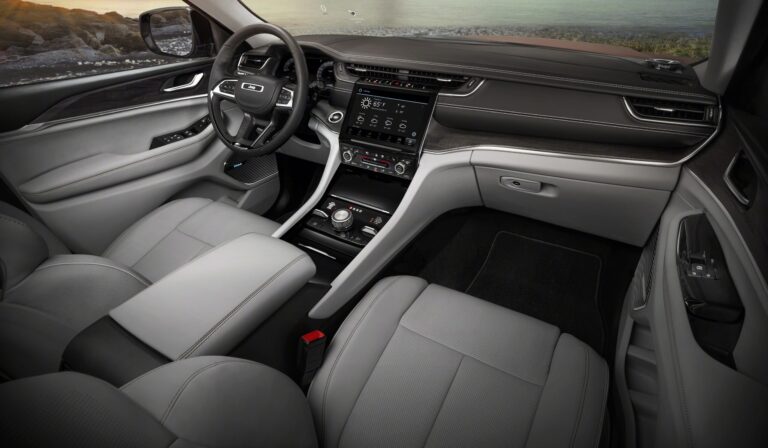1999 Jeep Grand Cherokee Motor For Sale: A Comprehensive Guide to Revitalizing Your WJ
1999 Jeep Grand Cherokee Motor For Sale: A Comprehensive Guide to Revitalizing Your WJ jeeps.truckstrend.com
The 1999 Jeep Grand Cherokee (WJ generation) holds a special place in the hearts of many SUV enthusiasts. Known for its rugged capability, comfortable ride, and distinctive styling, it was a groundbreaking vehicle for its time. However, as with any vehicle approaching or exceeding two decades on the road, the engine can eventually reach the end of its life. When faced with a failing or high-mileage motor, the decision to replace it rather than scrap the entire vehicle becomes a highly appealing and often cost-effective solution. This comprehensive guide explores everything you need to know about finding and purchasing a 1999 Jeep Grand Cherokee motor for sale, helping you breathe new life into your cherished WJ.
Understanding the 1999 Jeep Grand Cherokee Engine Options
1999 Jeep Grand Cherokee Motor For Sale: A Comprehensive Guide to Revitalizing Your WJ
Before embarking on your search, it’s crucial to understand the engine options offered in the 1999 Grand Cherokee. Two primary powerplants were available, each with its own characteristics, common issues, and fan base:
1. The 4.0L PowerTech Inline-Six (I6)
The venerable 4.0-liter inline-six cylinder engine is legendary for its durability and simplicity. It’s a direct descendant of engines that powered earlier Cherokees and Wranglers, earning a reputation for being nearly indestructible when properly maintained.
- Characteristics: Known for its low-end torque, reliability, and ease of maintenance. While not a powerhouse, it’s perfectly adequate for most daily driving and light off-roading.
- Common Issues: Despite its robustness, the 4.0L isn’t entirely without its quirks. Common problems include exhaust manifold cracks (leading to ticking noises), oil leaks (especially from the rear main seal and valve cover gasket), and occasional issues with the distributor or crank position sensor. These are generally minor and repairable, but a severely neglected engine can suffer catastrophic failure.
- Suitability: Ideal for those prioritizing reliability, fuel economy (relatively speaking for an SUV of its era), and ease of repair.
2. The 4.7L PowerTech V8
Introduced with the WJ Grand Cherokee, the 4.7-liter PowerTech V8 was a significant upgrade in terms of power and refinement, offering a smoother and more potent driving experience.
- Characteristics: Provides significantly more horsepower and torque than the 4.0L, making the Grand Cherokee feel more agile and responsive, especially at highway speeds or when towing.
- Common Issues: While powerful, the 4.7L V8 has its own set of known issues. These include problems with oil sludge buildup (especially if oil changes were neglected), ticking lifters, water pump failures, and occasional issues with the exhaust manifold bolts breaking. Overheating can also be a more critical concern with the V8, potentially leading to head gasket issues.
- Suitability: Best for those who desire more performance, frequently tow, or simply prefer the feel of a V8 engine.

Crucial Note: You must know which engine your 1999 Grand Cherokee originally came with. Swapping from a 4.0L to a 4.7L or vice-versa is an extremely complex and costly undertaking, requiring changes to the transmission, wiring harness, ECU, cooling system, and more. For a straightforward replacement, stick to the engine type your vehicle currently has.
Why Buy a Replacement Motor for Your 1999 Grand Cherokee?
The decision to replace an engine rather than the entire vehicle often boils down to a blend of practical and sentimental reasons:
![]()
- Cost-Effectiveness: A quality used or remanufactured engine, plus installation, is almost always significantly cheaper than purchasing a new or even a newer used vehicle. This is especially true if the rest of your WJ is in good condition (transmission, body, interior, suspension).
- Sentimental Value: Many owners have a deep attachment to their 1999 Grand Cherokees. It might have been a family vehicle, a first car, or a reliable adventure companion. An engine replacement allows you to keep a beloved vehicle on the road.
- Known Vehicle History: You already know the maintenance history and quirks of your current Grand Cherokee. Buying a different used vehicle introduces a new set of unknowns and potential problems.
- Performance Restoration: A new or rebuilt engine can restore your Grand Cherokee’s original power, efficiency, and reliability, making it feel like new again.
Types of Replacement Motors Available
When searching for a 1999 Jeep Grand Cherokee motor for sale, you’ll encounter a few main categories, each with its own pros and cons:
-
Used Engines (Salvage/Junkyard Engines):
- Pros: The most affordable option. Readily available from auto salvage yards or private sellers parting out a vehicle.
- Cons: Unknown history, mileage, and internal wear. No guarantee of longevity. Often sold "as-is" with limited or no warranty. Risk of buying a "dud."
- Where to Find: Local junkyards, online marketplaces (eBay, Craigslist, Facebook Marketplace), auto recyclers.
-
Remanufactured/Rebuilt Engines:
- Pros: Engines that have been disassembled, inspected, cleaned, and rebuilt to original factory specifications (or better) with new or reconditioned parts (pistons, rings, bearings, gaskets, etc.). Often come with a substantial warranty (e.g., 1-3 years, unlimited mileage). Offer excellent value, providing near-new performance at a fraction of the cost of a brand-new engine.
- Cons: More expensive than used engines.
- Where to Find: Specialized engine suppliers (e.g., Jasper Engines, ATK Engines, Fraser Engines), reputable auto parts stores, and some dealerships.
-
New Crate Engines:
- Pros: Brand new, never run engines directly from the manufacturer or a licensed producer. Offer the highest quality, longest lifespan, and best warranty.
- Cons: The most expensive option. For a 1999 vehicle, true "new crate engines" might be rare or incredibly costly, as manufacturers typically discontinue production of older engine models.
- Where to Find: Direct from Stellantis (Chrysler/Jeep) if still available, or specialized performance shops.
Key Considerations When Purchasing a 1999 Jeep Grand Cherokee Motor
Making an informed decision is vital to a successful engine replacement project.
- Engine Compatibility: Double-check the year, model, and engine type (4.0L or 4.7L). While the WJ 4.0L is similar across years, there can be minor differences in sensor locations or accessory mounts. The 4.7L also saw minor revisions in later years.
- Mileage (for Used Engines): Lower mileage is generally better, but always consider the source. A high-mileage engine from a well-maintained vehicle might be better than a lower-mileage one from a neglected car.
- Compression Test Results (for Used Engines): If possible, ask for a recent compression test to gauge the health of the cylinders. Consistent readings across all cylinders are a good sign.
- Warranty: This is paramount, especially for used or remanufactured units. Understand what the warranty covers (parts, labor), its duration, and the return policy.
- Seller Reputation: Buy from reputable sources. Check online reviews, ask for references, and look for businesses with a long track record.
- Included Components: Clarify exactly what comes with the engine. Does it include the intake manifold, exhaust manifold, alternator, power steering pump, AC compressor, wiring harness, or is it a "long block" or "short block" (just the core engine without accessories)? More components usually mean a higher price but less hassle during installation.
- Shipping Costs and Logistics: Engines are heavy. Factor in shipping costs, which can be substantial. Ensure the seller offers secure crating and reliable freight shipping.
- Legalities: While usually not an issue for direct replacements, if you’re attempting a non-standard swap (which is generally not recommended for the WJ), be aware of local emissions or registration laws.
Where to Find a 1999 Jeep Grand Cherokee Motor For Sale
- Online Marketplaces: eBay, Craigslist, Facebook Marketplace. Be cautious here. Verify seller credibility, ask for detailed photos and videos, and ideally, inspect the engine in person.
- Specialized Engine Suppliers: Companies like Jasper Engines, ATK Engines, Fraser Engines, and others specialize in remanufactured engines. They offer quality products with good warranties.
- Auto Salvage Yards/Junkyards: A classic source for used parts. You can often inspect the engine directly. Many yards now offer computerized inventories, making it easier to find what you need.
- Local Mechanics/Dealerships: Your trusted mechanic might have connections to suppliers or even have a good used engine on hand.
- Jeep Enthusiast Forums and Groups: Online communities often have members selling parts, or they can point you to reputable sources.
Installation: DIY vs. Professional
Once you’ve secured your replacement motor, the next step is installation.
-
DIY (Do-It-Yourself):
- Pros: Saves on labor costs. Offers a sense of accomplishment. You control the process.
- Cons: Requires significant mechanical knowledge, specialized tools (engine hoist, stand, transmission jack), a dedicated workspace, and considerable time. Mistakes can be costly and dangerous.
- Consideration: If you’re not an experienced mechanic with the right equipment, an engine swap is a daunting task.
-
Professional Installation:
- Pros: Expertise and experience, proper tools, often comes with a labor warranty, quicker turnaround. Peace of mind knowing it’s done correctly.
- Cons: Significant labor costs (can range from $1000-$2500+ depending on location and shop rates).
- Consideration: Get multiple quotes, check references, and ensure the shop has experience with engine swaps, particularly on Jeeps.
Tips for a Successful Engine Replacement Project
- Budget Beyond the Engine: Don’t forget costs for new fluids (oil, coolant), filters (oil, air, fuel), spark plugs, wires, belts, hoses, gaskets (exhaust, intake), and potentially a new water pump or thermostat if not included with your engine.
- Pre-Installation Checks: If you bought a used engine, it’s wise to replace common wear items like spark plugs, PCV valve, and possibly the rear main seal before installation, as they are much easier to access when the engine is out of the vehicle.
- Break-in Procedures: If installing a new or remanufactured engine, follow the manufacturer’s specific break-in instructions carefully. This typically involves varying RPMs, avoiding heavy loads, and changing the oil after an initial period.
- Documentation: Keep all receipts, warranty information, and records of the installation. This is crucial for any future warranty claims or if you decide to sell the vehicle.
Potential Challenges and Solutions
- Finding a Reliable Seller:
- Solution: Research, read reviews, ask for detailed photos/videos, inquire about the engine’s origin, and verify warranty terms rigorously.
- Shipping Damage:
- Solution: Inspect the engine thoroughly upon arrival before signing off on the delivery. Document any damage with photos and contact the shipping company and seller immediately. Shipping insurance is vital.
- Engine "Duds" (for Used Engines):
- Solution: A good warranty and return policy are your best defense. If an engine fails shortly after installation, initiate a warranty claim promptly.
- Hidden Costs:
- Solution: Create a detailed budget that includes all ancillary parts, fluids, and potential labor costs upfront. Factor in a contingency fund for unexpected issues.
1999 Jeep Grand Cherokee Motor For Sale: Estimated Price Guide
Please note: Prices are highly variable based on condition, mileage, warranty, supplier, and market demand. These are estimates for general guidance.
| Engine Type & Displacement | Estimated Price Range (Engine Only) | Typical Warranty | Key Pros | Key Cons |
|---|---|---|---|---|
| 4.0L I6 Used | $600 – $1,500 | 30-90 Days | Lowest Cost, Readily Available | Unknown History, No Guarantee, Higher Risk of Issues |
| 4.0L I6 Remanufactured | $2,000 – $3,500 | 1-3 Years, Unlimited Miles | Like-New Performance, Good Warranty, Reliable | Higher Cost than Used |
| 4.0L I6 New Crate | $4,000+ (if available) | Varies (Long) | Best Quality, Full Warranty | Very High Cost, May Be Difficult to Find |
| 4.7L V8 Used | $800 – $1,800 | 30-90 Days | Low Cost, More Power than I6 | Unknown History, Higher Risk of Sludge/Overheating Issues |
| 4.7L V8 Remanufactured | $2,500 – $4,000 | 1-3 Years, Unlimited Miles | Near-New Performance, Warranty, Improved Components | Higher Cost than Used |
| 4.7L V8 New Crate | $4,500+ (if available) | Varies (Long) | Best Quality, Full Warranty | Very High Cost, May Be Difficult to Find |
Note on Installation Costs: Professional installation typically adds $1,000 – $2,500+ to the total project cost, depending on the shop and region. Additional parts (gaskets, fluids, spark plugs, etc.) can add another $200 – $500+.
Frequently Asked Questions (FAQ)
Q1: Can I swap a 4.0L engine for a 4.7L V8 in my 1999 Grand Cherokee?
A1: While technically possible, it is not recommended for most DIYers or even many professional shops due to the immense complexity. It requires changing the transmission, engine computer (ECU), entire wiring harness, cooling system, exhaust system, and potentially more. The cost and effort far outweigh the benefits compared to a direct replacement.
Q2: What’s the typical lifespan of a 1999 Jeep Grand Cherokee engine?
A2: A well-maintained 4.0L I6 can easily exceed 200,000-250,000 miles, with many reaching 300,000+. The 4.7L V8, while powerful, might have a slightly shorter average lifespan due to its more complex design and susceptibility to oil sludge if neglected, typically lasting 150,000-200,000 miles.
Q3: What should I look for when inspecting a used engine in person?
A3: Look for signs of oil leaks (especially around seals), coolant residue (indicating overheating or leaks), broken sensors or connectors, missing components, and overall cleanliness. If possible, check for consistent compression across cylinders and ask about the donor vehicle’s history (e.g., wrecked, mileage).
Q4: Does a replacement engine usually come with a transmission?
A4: Typically, no. Engines are usually sold as "long block" or "short block" units, meaning the core engine without accessories or the transmission. Some sellers might offer a "drop-out" or "pull-out" from a wrecked vehicle that includes the transmission, but this is less common for engines sold individually.
Q5: How long does engine replacement typically take?
A5: For a professional shop, an engine replacement on a 1999 Grand Cherokee can take anywhere from 15 to 25 labor hours, meaning 2-5 business days depending on shop scheduling and parts availability. For an experienced DIY mechanic, it could take a full week or more of dedicated work.
Q6: Are there any legal considerations for engine swaps?
A6: For a direct replacement (e.g., 4.0L for 4.0L), there are generally no specific legal issues. If you were to perform a non-standard swap (which again, is not recommended), you would need to check your local emissions regulations and vehicle registration laws, as significant modifications can impact compliance.
Concluding Summary
Purchasing a 1999 Jeep Grand Cherokee motor for sale is a viable and often sensible decision for owners looking to extend the life of their beloved WJ. By understanding the available engine types, exploring the various replacement options (used, remanufactured, new), and carefully considering factors like compatibility, warranty, and seller reputation, you can make an informed choice.
Whether you opt for a budget-friendly used engine or invest in a reliable remanufactured unit, thorough research and meticulous planning are key to a successful project. With the right engine and proper installation, your 1999 Grand Cherokee can once again deliver the dependable performance and adventurous spirit it’s known for, ensuring many more miles of enjoyment from this classic SUV.







